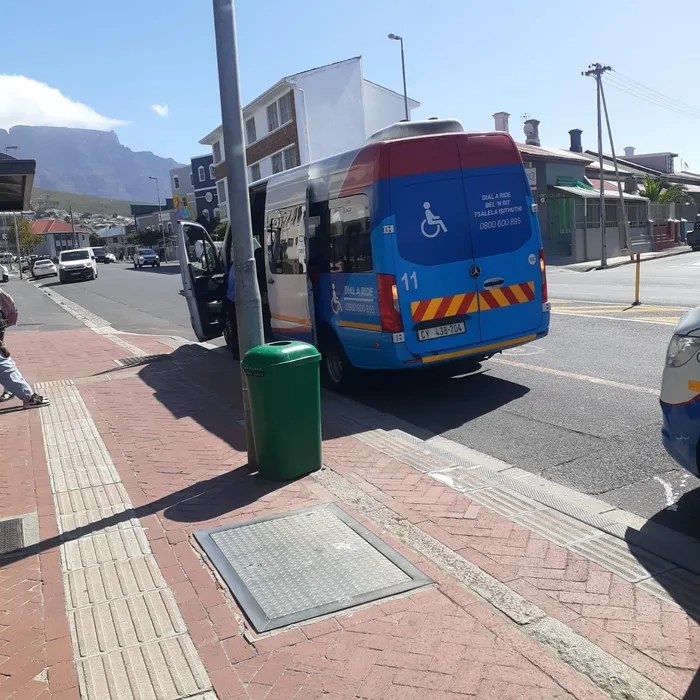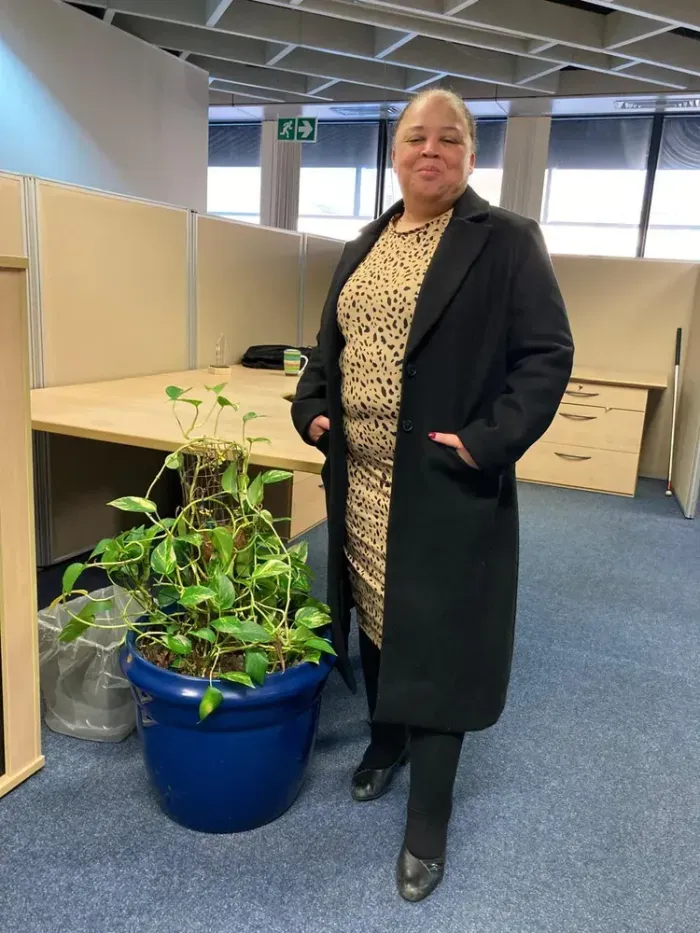Blind commuters left in the lurch as Cape Town's Dial-a-Ride service restricts access

Dial-a-Ride has announced changes to their services as of September 8.
Image: Supplied
The SA Human Rights Commission (SAHRC) is investigating two complaints against the City of Cape Town's Dial-a-Ride service, following its announcement to exclusively transport eligible wheelchair users, excluding the blind community.
Blind commuters, many of whom work in and around the City, have been given until September 8 to find alternative transport to their workplaces, as the Dial-a-Ride service said it was oversubscribed and suffering severe capacity challenges with its R28.2 million annual budget being insufficient for the current R40 million operating costs.
They announced that effective September 8, the service will exclusively transport eligible wheelchair users and those with severe walking impairments between Monday to Friday during peak periods, with minimal weekend and public holiday services for work-related travel.
The trips will be strictly between work and home and not recreational activities.
The Western Cape Network on Disability has since called on the City to halt their restrictions, engage with role players, and commit to implementing a fully accessible, integrated public transport system in line with the Constitution.
The SAHRC on Tuesday confirmed they received complaints against the City’s Dial-a-Ride service.
“To confirm that the WCPO (Western Cape Provincial Office) has received two complaints in this regard.
“To confirm that there are matters currently under investigation as lodged against Dial-a-Ride.”
Board chairperson of the Western Cape Network on Disability, Michelle Botha, said the suspension of services to the blind was an infringement of human rights, and placed them in a position of vulnerability.
“Under the new criteria, the service will only transport certain wheelchair users and people with severe walking impairments, and only between home and work during peak hours,” she said.
“All trips to education, healthcare, recreation, community activities, sport, and other essential services will be cut. Blind and visually impaired users will be excluded entirely.
“This decision is not simply a budgetary adjustment. It is a denial of the constitutional right to equality, dignity, and full participation in society. For many disabled people, DaR (Dial-a-Ride) is the only form of accessible transport available. The claim that there are viable alternatives such as MyCiTi buses, specialist e-hailing, or NGO transport is misleading.
“MyCiTi does not serve all areas, its infrastructure is not fully accessible, and hardware often fails. Golden Arrow buses remain inaccessible despite legislation. Specialist e-hailing is prohibitively expensive for most, and may still refuse users with assistance dogs despite their official policy.
“NGO transport is already overstretched, despite the fact that providing public transport is not the mandate of disability organisations.”

Amanda Matthee has been using Dial-a-Ride for over 20 years and is disappointed by the City's decision to exclude the blind from transportation services.
Image: Supplied
Amanda Matthee, who is visually impaired and works in Bellville and lives in the northern suburbs, said her safety would be placed at risk if the service comes to an end.
“The City is definitely not working for persons who are blind. This decision is a great infringement of my rights as a person who is blind,” she told the Cape Argus.
“I have been using DaR for over 20 years and just to be told we no longer assist you with transport is a slap in our faces.
“Our safety will be highly compromised by using other modes of transport.”
In response to the uproar and dissatisfaction, Urban Mobility mayco member, Rob Quintas, said they regretted the impact on users but that it was a difficult decision as funding would not allow for it to be resolved.
“The curtailment comes after months of trying to secure additional funding from other spheres of government.
“We have pleaded with the National Departments of Transport and Social Development to fund the budget shortfall. To this day, there has been no response from these departments.
“The Urban Mobility Directorate has analysed its operating costs and budget to see where we could find the money, but there simply is no alternative but to curtail the service.
“The service reductions are informed by budget availability and capacity constraints which determine the number of vehicles, drivers and kilometers that can be covered.
“The devastating reality is that the City has been providing the service at a massive shortfall for decades and it can no longer afford to do so.
“The City kindly requests the organisations to approach the National Government for additional funding for the service; or, to request the National Government to subsidise their transport operations.”
Get your news on the go, click here to join the Cape Argus News WhatsApp channel.
Cape Argus
Related Topics: